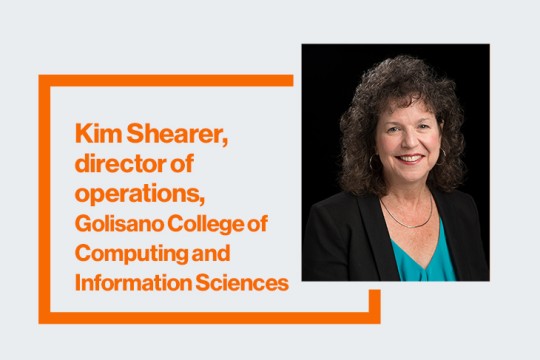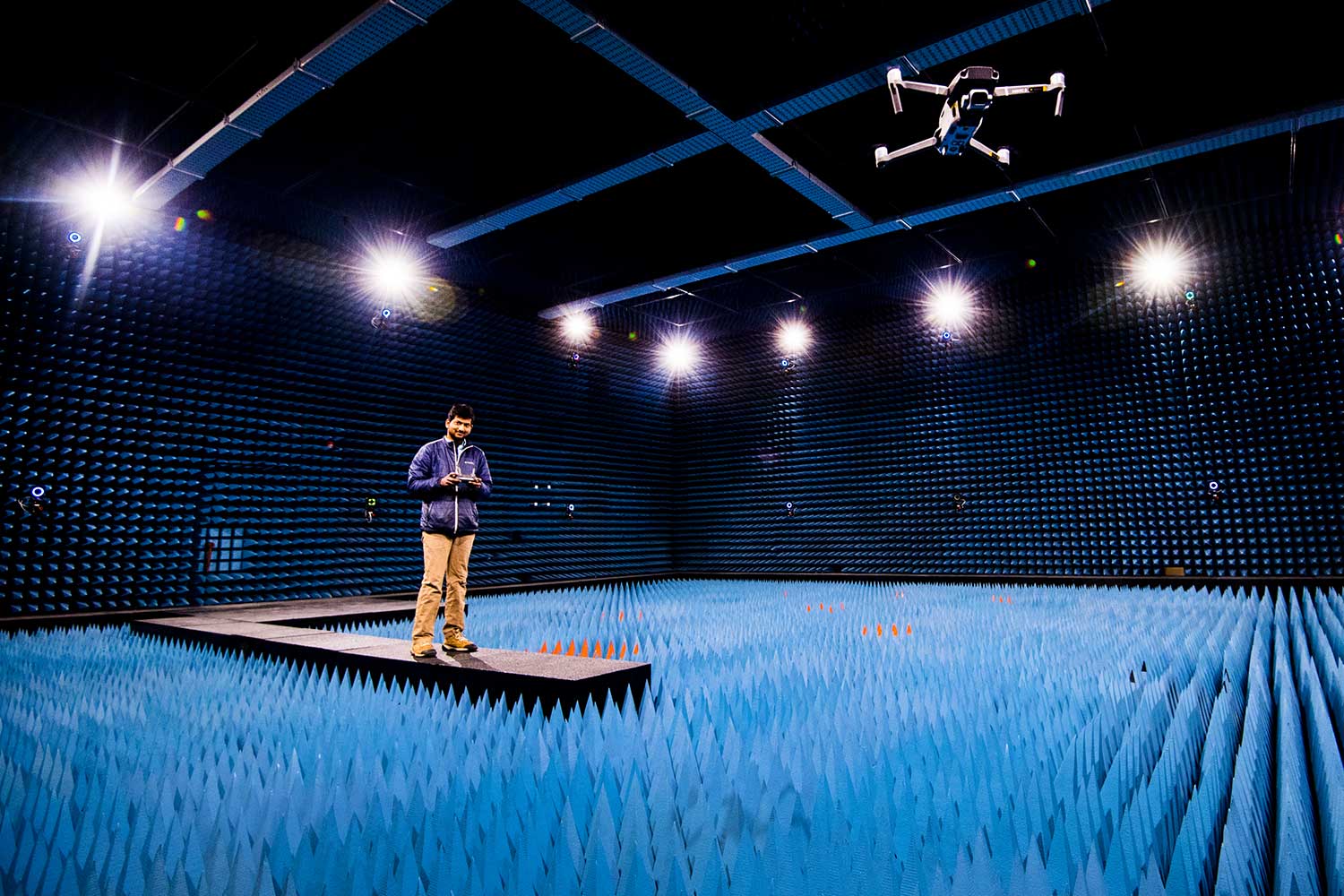
- Psychology Programs


What are the Differences Between a Masters and PhD in Psychology?
Choosing a path in psychology can be a bit like picking a route for a big journey. Should you stop at a master’s or go all the way to a PhD? While both are advanced degrees, they serve different purposes.
A master’s in psychology usually takes less time and provides a general overview, helping you get into various career paths within the field. A PhD, however, is a longer journey, focusing on specialized research and allowing you to become an expert in a specific area.
So, whether you are dreaming of counseling, teaching, or groundbreaking research, understanding the distinctions between these degrees is crucial. Let’s explore both options to find which suits you best!

Masters Vs. PhD in Psychology
A master’s in psychology typically takes 2-3 years and provides foundational knowledge and skills for various psychology-related careers. On the other hand, a PhD in psychology, taking 4-7 years, emphasizes research and advanced expertise, preparing graduates for academic, research, or specialized clinical positions.
To work in the field psychology, you need to have a minimum of master’s degree in psychology , and if you want to become a licensed psychologist , then a PhD will help you do that.
Master’s and Ph.D. degrees come under the heading of graduate studies. As mentioned above, a master’s degree in psychology typically takes between 2 to 3 years to complete in addition to an undergraduate in the same subject.
There are different types of psychology master’s degrees with the two most common being a Master’s of Art (M.A.) and a Master’s of Science (M.S.) . Without a master’s degree in psychology you cannot get licensed and hence you cannot begin practicing freely.
If your focus in psychology is more towards the applied side, you will need to complete an internship as well. Depending on the program, students may also need to prepare a thesis report towards the final months of a master’s program.
When it comes to a psychology doctorate degree , there are essentially 2 options – a PhD (Doctor of Philosophy) or a Psy. D (Doctor of Psychology) . A PhD in psychology is more research oriented, whereas a Psy. D is more focused towards the practical and clinical sides. However, we are limiting our discussion to a PhD in psychology.
Typically a PhD can take between 4 and 7 years depending on how you approach it and on your work schedule. A few years of course work and a final dissertation are almost always required in a PhD program. Some PhD programs even require students to complete an internship which formally marks the end of their doctorate program.
The Road to Get There
To get into a master’s level program in psychology, it is preferred that candidates possess an undergraduate background in psychology. At the undergraduate level, students are presented with the opportunity to choose their majors which is then carried forward in the master’s program.
The undergraduate degree is necessary for creating a strong background and laying the right foundation for students. Some masters programs prefer that candidates have gone through some practical training which usually takes the form of an internship.
A master’s degree in psychology can also serve as an inroad to a PhD in psychology. Many top university PhD programs require students to have a master’s degree in psychology under their belt as a pre-requisite.
However not all PhD programs have that requirement. Some programs offer students a terminal master’s degree in the process of a PhD. This is basically a specialized master’s program that prepares students in their area of expertise and professional practice.
It is often required by PhD level psychology programs for students to have some kind of prior practical experience. This could be an internship or an assistant level position to a senior psychologist. With added practical experience, the concepts taught at the doctorate level are easier to understand and make more sense.
After Graduation
Psychology is a vast and quick expanding field of science which means that demand for qualified psychologists is high. With a masters level psychology you may land some entry level jobs such as a research assistant, assistant to a supervisor, teacher’s assistant and so on. You may work with other psychologists and learn from them on the job.
Opportunities may also exist in mental health institutes, schools and the like. You may also sit-in some sessions with a senior as they treat other patients. Initially there will be a lot of interaction with seniors in a controlled environment.
With a PhD in psychology under your belt you may be exposed to a more challenging and dynamic work environment. You may be part of an experiment where patients are kept under closely monitored situations. Pharmaceutical companies may contract your services to work on drug trials for instance.
Depending on your chosen niche, you may spend time with patients at correctional facilities, detention centers and even prisons.
Which One is Right For You?
There is no right answer for this question. Both degree options have their own merits, requirements and results. What matters is your drive and motivation as well as your career aspiration. For starters, you need to have an interest in the subject of psychology, otherwise there may not be any point in doing a masters, let alone a PhD.
A masters can only take you so far career-wise, sooner or later you will need to rely on a PhD to take your career to the next level – therefore you need to consider your vision. The best way to answer this question is from a timeline point of view – you must prioritize your goals at the given time.
Related Reading
- How to Become a Private Psychologist
- Bachelor’s Vs. Master’s Degree in Psychology
- NO GRE Online Master’s Degrees in Psychology
- Psychology PhD Programs That Don’t Require GRE
- What Can You Do With a Bachelor’s of Arts Psychology Degree
- Associate Psychology Degrees
- Bachelor's Psychology Degrees
- Master's Psychology Degrees
- PhD Psychology Degrees
- Online ABA Degrees
- Applied Psychology Degrees
- Business Psychology Degrees
- Behavioral Psychology Degrees
- CBT Therapist Degrees
- Child Psychology Degrees
- Child Therapist Degrees
- Child Life Specialst Degrees
- Criminal Psychology Degrees
- Counseling Psychology Degrees
- Developmental Psychology Degrees
- Educational Psychology Degrees
- Industrial Psychology Degrees
- Psychiatry Degrees
- Psychotherapy Degrees
- School Counseling Degrees
- Sports Psychology Degrees
- Trauma Psychology Degrees
- See More Programs
- Clinical Psychology Programs
- Cognitive Psychology Programs
- Forensic Psychology Programs
- Health Psychology Programs
- Mental Counseling Programs
- Social Psychology Programs
- Neuropsychologist Programs
- ABA Therapist Career
- Clinical Psychologist Career
- Cognitive Psychologist Career
- Counseling Psychologist Career
- Forensic Psychologist Career
- School Psychologist Career
- Social Psychologist Career

Gettysburg College Gettysburg College
Difference between a Masters and Doctoral Degree
What's the difference between a masters degree and a doctoral degree, rank and salary.
Relative to individuals with masters degrees, those with doctoral degrees have more opportunities to obtain higher-ranking positions with more independence. For example, a masters degree would enable you to get a job in marketing, but to become the head of marketing research at a company you would probably need a Ph.D. Likewise a masters degree would enable you to get a job conducting research, but to become the head of the lab (the person responsible for designing and overseeing all the studies being conducted) you would probably need a Ph.D.
Preparation for particular kinds of careers
A Ph.D. is usually required for a career as a professor, or as the head of a research lab. However, note that many other positions can be held with either a masters or a doctoral degree.
Amount of credits/time required to complete the degree
A doctoral program takes a minimum of 4 years, while a masters program takes approximately 2 years. Often people in doctoral programs will receive a masters along the way, after about 2 years.
Research focus during graduate school
Doctoral programs in psychology are highly research oriented, and require a doctoral dissertation on research you conduct. Masters programs in psychology and related fields may or may not be particularly research oriented (it depends on the program).
Who pays for graduate school
Ph.D. programs often provide funding to cover the cost of tuition, and offer their students research assistant and teaching assistant positions to help pay for living costs while attending graduate school full time.
Application process
Applications to doctoral programs often involve applying to work with a particular professor who would become your research advisor/mentor as well as your primary source of funding. You’d first explore various professors’ research interests, read their papers, and find out if they will be taking any new students to work with them. When you apply, you’d write a different essay for each school explaining your own research ideas and skills and highlighting how they would make a good fit for a particular professor’s labs.
When applying to masters programs you’ll still want to familiarize yourself with the departments you are applying to, but there is rarely a need to apply to work with specific potential mentors at each school.


PsyD vs PhD: Which Psychology Degree Should You Get?
Studying psychology provides a window into human behavior. Doctoral psychology programs teach both an understanding of how people think and analytical and reasoning skills to further success in various careers. But deciding to pursue a doctoral degree in psychology means dedicating yourself to the highest level of education available in the field and represents a commitment of several years and significant effort.
While both a doctor of psychology (PsyD) degree and a doctor of philosophy (PhD) promise remarkable opportunities for advancement, the two offer very different career outcomes. While a PhD puts you on a path to pursue research and further understanding, a PsyD allows you to practice as a psychologist.
According to the Bureau of Labor Statistics , demand for psychologists with both degrees is expected to continue growing at a rate of approximately 8% over the next decade as more and more individuals, organizations, and academic institutions have greater need of counseling services and insights into the way that people act, think, and engage with one another.
What Are PsyD and PhD In Psychology Degrees For?
While both a PsyD and a PhD provide you with a doctoral degree and the highest level of education in the field, the two provide different types of expertise, and it is important for you to understand their distinctions so that you can make the choice that best matches your goals.
A PhD in psychology trains you in research and statistical analysis in preparation for adding to the body of knowledge, either through your own scientific pursuits or by helping to educate others studying psychology . By contrast, PsyD studies focuses more extensively on providing psychological services, whether counseling or applying psychology’s principles to further an organization’s goals.
Though pursuing either one will not preclude you from crossing over to a career that’s more aligned to the other, choosing the degree that best suits your long-term interests provides you with the education that is best suited to your aspirations.
Picking Between A Doctor of Psychology or PhD In Psychology Program
To help you determine which of the two doctoral degrees is the best choice for you, let’s take a look at what each type of program entails and what type of future each prepares you for.
What is a PsyD?
A doctor of psychology program generally takes between 4-6 years to complete and prepares you for a career in clinical practice. It has less of an emphasis on research than human behavior and development, psychological assessment, and intervention.
Most programs require completion of approximately sixty credits of study, participation in 2,000-to-3,000 hours of clinical practice and internship, and preparation and presentation of a dissertation.
Upon completion of the program, graduates demonstrate the understanding and skills needed to guide one-on-one, family and group therapy sessions, to guide organizational strategies around anticipated human behaviors and engagement, to conduct neuropsychological assessments, and to treat mental health problems and issues.
Who Should Get a PsyD?
Doctoral candidates best suited for a PsyD are those who want to engage directly with individuals, families or groups, using their education and training to provide service rather than conducting research.
Those enrolled in PsyD programs receive extensive training in assessment and intervention, on human development, and on the role of cultural and economic contributors, all with the goal of better facilitating their understanding of behavior. PsyD students also study the practical aspects of clinical psychology, including legal, ethical, and professional issues.
PsyD Careers and Salaries
With a PsyD degree you become prepared for professional practice within any number of applications of psychology science. A PsyD degree trains you to use your knowledge and training in service and practice, with an emphasis on assessment, diagnosis, intervention, and making improvements in the condition of and relations between humans in a variety of environments. Depending upon the career that they choose, their practice can include engaging with people in a clinical setting, at their workplace, in school, or elsewhere.
Typical careers held by those with a PsyD degree include:
- Median Salary: $51,340
- Career Outlook: +16% (2020-2030)
Family and marriage therapists work with couples and families with the goal of mediating and guiding the way that they engage with one another while providing coping strategies to improve family dynamics and to help those within these relationships deal with a wide range of issues, including behavioral problems, grief, domestic violence, marital conflicts, and substance abuse.
Marriage and family therapists observe the interactions between the individuals in these groups and provide them with insights about troubling patterns, guidance on navigating crises, diagnosing mental health issues and disorders, and replacing disruptive or dysfunctional behaviors with alternatives that offer more positive engagement.
- Median Salary: $105,780
- Career Outlook: +8% (2020-2030)
The services of those holding doctoral degrees in psychology are increasingly in demand from a wide range of organizations and corporations seeking assistance with improving organizational behavior or providing coaching to managers and executives. These professionals apply their clinical skills in areas such as integrating systems theory or family therapy to companies hoping to address cultural issues or improve communication and cooperation within and between teams.
What is a PhD in Psychology?
A doctor of philosophy in psychology degree generally takes between 5-7 years to complete, and prepares you for a career in research and academia. The focus of a PhD in psychology program tends to be on statistics along with qualitative and quantitative research methods. The career goals of most students point towards teaching or scientific inquiry rather than private practice or direct engagement with patients.
Most PhD in psychology program require approximately a year-long internship and credit requirements that range between 60 and 125 credits. The programs require a significant level of concentration and are often so demanding that students need to dedicate themselves to the program on a full-time basis. The admission criteria into a PhD program tends to be more competitive than that of PsyD programs.
Once students in PhD in psychology programs successfully prepared and presented their dissertation, they have proven their command of the biological, intellectual and cognitive foundations of behavior, assessment, statistics and research techniques, research strategies, and more. They graduate prepared for careers in specialty areas including behavioral neuroscience, clinical psychology, human growth and development, with a particular emphasis on research and its application.
Who Should Get a PhD in Psychology?
In assessing whether you should pursue a PhD in psychology, you need to determine what type of career you hope to have and how you plan to apply your education. If your goal is to become a tenure-track professor at a research-oriented university or to dedicate yourself to academic research, then there is no doubt that a PhD is the right degree for you. The same is true if you hope to work in a business-oriented field such as market research or product development with an emphasis on consumer insights.
The benefit of a PhD in psychology is its emphasis on research design and analytical skills, and that training can be applied to numerous fields that do not involve direct engagement with, assessment, diagnosis, or interventions with patients.
PhD in Psychology Careers and Salaries
Those who pursue a PhD in psychology tend to be less focused on the monetary benefits of their education than in the intellectual stimulation that they receive or the benefits that their education can provide to clients or to greater understanding of human behaviors gained through their efforts.
The career goals of those who opt for a PhD can include clinical roles, but more frequently veer towards professions that place them in a position of conducting research and applying their knowledge to educating students and providing insights that can be used by other fields. Possible careers for PhD graduates include:
- Median Salary: $82,180
The field of forensic psychology applies general principles of research in the field of clinical psychology to legal issues. This can include assessment, treatment, and evaluation of topics such as eyewitness identification, suggestibility, competence to testify, motivation and threat assessment. Forensic psychologists are often called on to provide custody evaluations, counseling services to crime victims, screening of law enforcement applicants and intervention and treatment for juvenile and adult offenders.
- Median Salary: $80,560
- Career Outlook: +12% (2020-2030)
Those who teach psychology are also frequently researchers who split their time between conducting scientific inquiry within an academic environment and teaching it to students at the undergraduate and graduate level. Professors with a PhD in Psychology gather, document and communicate psychological knowledge.
- Median Salary: $125,350
- Career Outlook: +9% (2020-2030)
The knowledge and training gained with a PhD in psychology is extremely valuable to numerous industries seeking greater understanding of human behavior, and this is particularly true of the world of politics. PhDs in psychology are well-positioned to guide candidates in the way that they present themselves to voters and to help legislators craft laws or discuss issues with their constituents, assessing what their priorities and perspectives are and how marketing efforts, speeches, votes and political positions could be received.
Best Psychology Schools
Choosing the right psychology program can be stressful, especially with so many options available. Using a rigorous methodology , Universities.com considers these to be the 10 best psychology schools in the nation:
- Northwestern University
- Columbia University in the City of New York
- Lindsey Wilson College
- University of Pennsylvania
- Webster University
- Lamar University
- Liberty University
- Capella University
- Walden University
- University of Central Florida
To find more psychology schools, check out our complete ranking of all psychology schools in the nation.
If you’re looking for other schools that offer PdD programs on psychology, check out the Find Your Perfect “U” tool. You can search over 6,000 colleges and universities with 11 different filters to find the perfect school for you !
PsyD Vs PhD At A Glance
Choosing between a PsyD and a PhD is a matter of personal choice, and your answer depends upon your personal goals. Though both doctor of psychology degrees provide you with the education, training and credentials to put you at the pinnacle of the field, there are important differences, including:
- A PsyD program better prepares you for a service-based psychology career geared towards counseling, while a PhD program better prepares you for a career geared towards discovery through research and academia.
- Acceptance into PsyD programs are generally less competitive than PhD programs.
- PsyD programs are better suited to online learning, while PhD programs favor in-person learning.
- PsyD program lengths generally take four-to-six years to complete, while PhD programs generally take five-to-eight years to complete.
- A PsyD curriculum is likely to include classes focused on assessment and intervention, while a PhD curriculum is likely to focus on statistics and analysis.
What to Look for In Psychology Doctoral Degree Programs
Doctoral degrees in psychology are offered in traditional, on-campus settings as well as online. Both options provide similarly high levels of education and the same curriculum requirements, often pairing students with an individual faculty advisor responsible for guiding their path to a doctoral degree.
There are many advantages to pursuing a degree online, including providing students the ability to choose a program based on its focus rather than on geographic proximity and allowing them to continue upholding family responsibilities. Despite this convenience, many students pursuing either a PsyD or a PhD choose an in-person program that allows them to fully immerse themselves in their studies.
As is the case with choosing between a PsyD or a PhD, there is no right or wrong choice. Students that choose online programs graduate with the same credentials as those who choose in-person programs, so each candidate should choose the option that best suits their personal needs.
Though requirements vary, most states require that psychologists counseling patients complete a doctoral degree in psychology and have a state-issued license. The requirements for these licenses generally include:
- Earning either a PsyD or a PhD from an institution of higher learning that has been accredited by the American Psychological Association
- Passing the Examination for Professional Practice in Psychology (EPPP )
- Fulfilling a minimum number of supervised clinical practice hours.
Many graduates recommend investigating the credentialing requirements of the states where they are interested in working to ensure that their doctoral degree properly prepares them and meets their standards.
The best way to ensure that the PsyD or PhD program you select prepares you for licensure is to select a program that has gone beyond the basic regional accreditation of institutions of higher learning and been recognized by the American Psychological Association . This specialized accreditation is recognized by both the Council for Higher Education Accreditation and the U.S. Department of Education, and specifically addresses the high standards needed for professional education and training in psychology.
The APA currently accredits hundreds of programs throughout the nation, providing those interested in pursuing their doctoral degree an extensive range of offerings for their professional future.
Applying to Psychology Doctoral Programs
Choosing to pursue a doctoral degree in psychology represents a significant investment of time, money and effort with the anticipated outcome of becoming either a noted academician and scholar or an accomplished, difference-making professional. Entry to these programs is competitive, particularly for those seeking entry into one of the programs offering a PhD in psychology program, which generally only accept 10-15% of applicants.
The first step in the application process is similar to the one you likely pursued when applying to undergraduate programs: You need to identify the programs that best match your long-term goals and your personal needs, then address each of their application requirements by assembling needed materials including letters of recommendations and personal statements and ensuring that they are in each program’s possession well in advance of their deadlines.
Admission Requirements for PsyD and PhD Programs
Individuals choosing to pursue either a PsyD or a PhD come from a wide range of backgrounds and interests, and this is reflected in the fact that programs do not necessarily require that applicants possess an undergraduate degree in Psychology, though those who have not taken foundational courses likely need to investigate how they’ll need to supplement their education before proceeding with their doctoral degrees.
Acceptance into both PsyD and PhD programs generally requires:
- Transcripts from accredited baccalaureate program showing a minimum 3.0 GPA, preferably in psychology
- Personal statement or statement of purpose
- Submission of scores on both the general GRE exam and the GRE subject exam in Psychology
- Three letters of recommendation
- Personal Interview (in person or by phone or video conference)
- A PsyD is a doctoral degree in psychology. It is an indication that an individual has attained the highest level of education available in the study of psychology, but they are not a medical doctor.
- PsyD and PhD are both terminal degrees in psychology that indicate having attained the highest level of education and expertise in the field. The determination of which is better depends upon the goals of the individual pursuing the degree.
- The PsyD degree provides education and training geared towards clinical practice and a professional career in treating patients, while a PhD education focuses more heavily on research and academic pursuits. The PhD generally takes longer to attain.
- In the majority of states, psychologists are not able to write prescriptions for medication. Illinois, Louisiana and New Mexico permit licensed psychologists to qualify for prescribing authority after taking additional courses in psychopharmacology.
Check out our newsletter to stay updated on college updates, news, advice, and more.
- Bipolar Disorder
- Therapy Center
- When To See a Therapist
- Types of Therapy
- Best Online Therapy
- Best Couples Therapy
- Best Family Therapy
- Managing Stress
- Sleep and Dreaming
- Understanding Emotions
- Self-Improvement
- Healthy Relationships
- Student Resources
- Personality Types
- Guided Meditations
- Verywell Mind Insights
- 2024 Verywell Mind 25
- Mental Health in the Classroom
- Editorial Process
- Meet Our Review Board
- Crisis Support
What to Know About a Master's in Psychology
How Long It Takes, Career Options, and Alternatives
Kendra Cherry, MS, is a psychosocial rehabilitation specialist, psychology educator, and author of the "Everything Psychology Book."
:max_bytes(150000):strip_icc():format(webp)/IMG_9791-89504ab694d54b66bbd72cb84ffb860e.jpg)
Emily is a board-certified science editor who has worked with top digital publishing brands like Voices for Biodiversity, Study.com, GoodTherapy, Vox, and Verywell.
:max_bytes(150000):strip_icc():format(webp)/Emily-Swaim-1000-0f3197de18f74329aeffb690a177160c.jpg)
Caiaimage / Tom Merton / Getty Images
Master of Science vs. Master of Arts in Psychology
- Master's in Psychology Types
- Master's Degree Before a Doctorate
- Job With a Master's in Psychology
- Preparing for a Master's Program
- Alternatives to a Master's in Psychology
A master's in psychology is a graduate-level degree that generally involves two to three years of study after you complete your undergraduate (bachelor's) degree. The two most common types of psychology master's degrees are the Master of Arts (MA) and the Master of Science (MS).
A master's degree can open up a new world of career opportunities. Start by exploring what's involved in determining the right educational choice for you: how long it will take, your career options after graduation, and alternative degrees you might want to consider.
At a Glance
A master's in psychology usually takes two to three years to complete. Some people may stop at this level, but others may then continue to get a doctorate degree. Earning this type of degree can be an important professional step, leading to more job opportunities, higher pay, and the possibility of becoming a licensed professional in some fields.
An MA in psychology may indicate a stronger liberal arts focus, while an MS in psychology usually means a stronger concentration on research and the sciences. The type of degree offered depends on the school and program , however, since the academic requirements are often very similar.
Some master's programs in psychology offer what is known as a terminal degree. This type of degree is designed to prepare graduates for professional practice in their specialty area . In other cases, a master's degree may serve as preparation for further study at the doctoral level.
Specific requirements can vary considerably, so take a careful look at the course outline of any program you are considering. You may also choose between a thesis and a non-thesis option.
Completing a thesis is a good choice if you're interested in further graduate study, while the non-thesis alternative might be ideal if you are more interested in entering the workforce immediately after graduation.
Master's in Psychology Types
While generalist programs are available, many students elect to focus on a particular specialty area. Some of the different types of master's programs available include:
- MA or MS in Experimental Psychology
- MA or MS in Industrial-Organizational Psychology
- MA or MS in Forensic Psychology
- MA or MS in Clinical Psychology
- MA or MS in Social Psychology
- MA or MS in Child Development
- MA or MS in School Psychology
In addition to traditional master's programs, there are a variety of online master's degrees in psychology available. This can be a great option for students who don't live near a university or who need a more flexible schedule.
Master's Degree Before a Doctorate
One of the biggest questions facing students interested in earning a graduate degree in psychology is whether or not they should earn a master's degree before applying to a doctoral program.
Many PhD and PsyD programs do not require a master's degree, and students can begin these doctoral programs immediately after completing their bachelor's degrees.
If you're unsure if doctoral study is right for you, a master's degree can be a good option. Spend some time talking to your college advisor and faculty members to determine which option is the best choice based on your educational interests and career goals.
Job With a Master's in Psychology
A master's in psychology can help you gain many important skills, including:
- Critical thinking
- Communication
- Interpersonal
While having a master's degree means you'll find more job opportunities than at the bachelor's level, job options are still limited if you're interested in entering the field of professional psychology.
A terminal master's program, however, does open the door to entry-level jobs in fields such as mental health , industrial-organizational psychology, and forensic psychology . Other potential employment sectors include colleges, universities, private businesses, and government.
Preparing for a Master's Program
If you're interested in pursuing a master's degree in psychology, it pays to start planning early. Check the requirements of a few programs you're considering, and then be sure to schedule all of the prerequisite courses during your years of undergraduate study.
Statistics, experimental methods , and developmental psychology are just a few of the common courses required by psychology graduate programs .
Before you apply to a master's program, you may also be required to take the Graduate Record Examination or GRE. In addition to taking the main test, you might also need to take the GRE psychology subject test .
Once you've been admitted to a master's program, take note of the required courses, and check out your school's class offering schedule. Some classes are only offered every other semester or every other year, so plan carefully to ensure that you are able to take all the classes you need during your two- to three-year program.
Alternatives to a Master's in Psychology
You might decide that a master's degree in psychology is not the best choice for you. In such cases, a different degree may be better able to help you fulfill your academic and career goals.
Fortunately, there are many related alternative programs to choose from. If you know that you want to work in mental health, counseling, social work , school psychology, education, and health sciences, there are other academic options that might also appeal to you.
Possible alternative degrees include:
- PhD in Psychology
- Doctor of Psychology (Psy.D.)
- Master's in Social Work
- Master's in Counseling
- Master's in Sociology
- Master's in Student Affairs
- Master's in Education
What This Means For You
A master's in psychology can be a great option for many students, particularly those who want to advance their careers or pursue further graduate study. Some master's programs offer a general degree, but many focus on a specialty area such as clinical psychology, industrial-organizational psychology, or school psychology. If you think a master's in psychology might be right for you, talk to an academic advisor to learn more about your options.
Michalski DS. Master's careers in psychology . Psychology Student Network.
Gee DG, DeYoung KA, McLaughlin KA, et al. Training the next generation of clinical psychological scientists: A data-driven call to action . Annu Rev Clin Psychol . 2022;18:43-70. doi:10.1146/annurev-clinpsy-081219-092500
U.S. Bureau of Labor Statistics. Psychologists . Occupational Outlook Handbook .
By Kendra Cherry, MSEd Kendra Cherry, MS, is a psychosocial rehabilitation specialist, psychology educator, and author of the "Everything Psychology Book."
Degree Requirements for Therapists
Do you need a Master's or a Ph.D. for a career in therapy?
- Choosing a Graduate Program
- Tips & Advice
- Admissions Essays
- Recommendation Letters
- Medical School Admissions
- Homework Help
- Private School
- College Admissions
- College Life
- Business School
- Distance Learning
- Ph.D., Developmental Psychology, Fordham University
- M.A., Developmental Psychology, Fordham University
A career as a counselor or therapist is possible with a master's degree, but whether you choose to pursue a master's or doctoral degree depends on your interests and career goals. If you like working with people but aren't interested in conducting research, consider seeking a master's degree in a helping field such as counseling, clinical psychology, marriage and family therapy, or social work.
Clinical psychology focuses on treatment of mental illnesses and psychiatric problems, while at the other end of the spectrum, a social worker assists clients and families with problems in their lives—unless, of course, he or she is a clinical social worker who can diagnose and treat mental health issues as well.
The educational path you choose is largely dependent on exactly how you want to go about helping others. However, you cannot practice as a psychologist if you decide to pursue a master's degree in clinical or counseling psychology. The term "psychologist" is a protected label reserved only for licensed psychologists, and most states require a doctoral degree for licensure. You can use the term "therapist" or "counselor" instead.
Opportunities With a Doctoral Degree
If you think you might want a career as a researcher, professor or administrator, a doctoral degree—usually a Ph.D. or Psy.D. —may be the best choice, and as a result, doctoral-level education includes training in research in addition to therapeutic skills.
The research training that accompanies a doctoral degree provides opportunities to teach college, work as a researcher, or engage in program review and development. Try to think ahead and imagine your future self as you consider your degree options—mental health administration may not seem appealing now, but your view might change in the coming years.
Furthermore, many career fields require doctoral degrees beyond entry-level private practice for therapy. Occupational and physical therapists both must pass certification, depending on the state where the therapist is practicing, which typically require doctoral-level education to pass or in some cases even take.

Independent Practice for Master's Level Professionals
Master's level practitioners can practice independently in all states using the label of counselor, social worker or therapist. Furthermore, a master's degree in counseling, clinical or counseling psychology, social work (MSW), or marriage and family therapy (MFT) followed by appropriate credentialing will enable you to work in a private practice setting.
Look into the certification requirements in your state as you consider master's programs, including education and supervised practice. Most states require 600 to 1,000 hours of supervised therapy after you obtain a master's degree.
Carefully evaluate master's programs to ensure that they meet the requirements for certification or licensure as a counselor in your state so you can practice independently if you choose as there are licensure and certification requirements that vary. You'll need to ensure proper accreditation to set up a private practice.
- Should I Seek the MSW, PhD or DSW for a Career in Social Work?
- What Does a Social Worker Do?
- The Meaning and Significance of a PsyD
- Training in Clinical and Counseling Psychology
- Jobs for Psychology Majors
- How to Decide Between a Ph.D. or Psy.D. in Psychology
- What Does It Take to Earn a Master's Degree?
- Applying to Graduate Programs in Clinical or Counseling Psychology
- What Is a Master of Social Work?
- What Comes After a Master's Degree?
- A Doctor of Philosophy or Doctorate
- Business Administration Education and Careers
- What Is a Public Administration Degree?
- Top Nursing Schools in Georgia
- Types of Nursing Programs and Degrees
- Pros and Cons of Earning a Master's Degree Before a PhD

Masters versus PhD
Which should you apply for.
Posted January 31, 2011
Those who are considering going to graduate school often ask if they should apply to Masters degree or PhD programs. This is an important issue that deserves some attention . Why? When your career goals, experience, and skills match up with the type of degree you are pursuing, you will likely (1) get more out of grad school, (2) more readily see the benefits of specific hurdles you will have to pass to complete your degree, (3) have a more meaningful graduate school experience, and (4) spend the appropriate amount of time in grad school. A match between your goals, experience, skills and the type of degree programs you are applying to will also help you GET IN!
Before we discuss the factors that you should (and should not) consider when making the decision between pursuing a Masters versus a PhD, let's talk about some background inside information. Masters degree and PhD students have very different functions within a University. It will be helpful in your decision making process to understand these functions:
What is the purpose of Masters degree students for Universities? Universities admit Masters degree students to fulfill two important goals. First, it helps the University to graduate classes of prepared, professional individuals who will make good impressions in their fields. When a University produces Masters degree students who appear bright, well-educated, and valuable in the workplace, the University benefits. Employers might be more likely to hire more future graduates of that University. They may even consider partnerships with Universities that consistently turn out students who become excellent employees. Second, Universities recruit Masters degree students to make money. It may seem cynical, but Masters degree students are a big money maker for educational institutions. Universities can charge students a lot, and often pay part-time instructors (with lots of real-world experience) to teach these students little.
What is the purpose of PhD students for Universities? Universities have a different set of goals in mind with respect to PhD students. Universities acquire PhD students to serve three purposes: (1) teach undergraduates students cheaply, (2) do a lot of research and (3) make faculty members happy. Research faculty members generally love having bright, hard-working, energetic PhD students because, with their help, they can collect a lot more data and write a lot more research articles. Universities also hope PhD students will reflect a positive image of the University post-graduation, but, in my opinion, they are more focused on what PhD students can do for them while they are students than after graduation.
Now that you understand more about where a University is coming from when it accepts graduate student for both Masters and PhD programs, let's discuss the factors that you should and should not think about when deciding if you will apply to become a Masters degree or PhD student.
Factors that you SHOULD consider:
Your career goals The most important factor in deciding if you will apply to PhD or Masters degree programs should be your career goals. There are many different types of higher degrees in psychology (read about them in two of my previous posts -- here and here ) and graduate school is a major commitment so be sure to put in the time to thoroughly research which degree is best suited to your career goals. Although implied, it is worth mentioning that this also means you should have a clear idea of what your career goals are before applying to graduate school. Graduate school is an investment in time and money. Would you spend a good deal of time and money on something that you didn't know what you were going to do with? Probably not. Going to graduate school without a clear career goal is similarly inefficient.
Money Masters degrees and PhD are both expensive, but in different ways. Masters degrees usually involve paying a large sum for tuition. In contrast, for the majority of PhD students, tuition is waived. Earning a PhD is still expensive because it often involves being a full-time student for up to 8 years. During these years, you could be earning a full salary, rather than a meager graduate assistant's stipend (see my previous post about this issue here .) Thus, when you are deciding whether to apply for a Masters degree or a PhD, you should take time to think about your finances. While both a Masters and a PhD mean making a financial sacrifice, does one make more dollars and sense for you?
Time commitment Another important factor to consider is that it generally takes 2 years to complete a Masters, but 4 to 8 years to complete a PhD. Think about how old you will be when you complete graduate school and reflect on this period of time in a holistic way. How does it relate with other aspects of your life and your other non-educational goals? Consider not only if you have the wherewithal to be a student for the next 2-8 years, but also how would other facets of your life (e.g., location, family, relationships) be affected by you being a student for that length of time.
Factors that you should AVOID considering:
Prestige Avoid applying for a PhD instead of a Masters because you are drawn to the status you believe it will bring you. First, keep in mind that PhDs in Psychology earn relatively small salaries in comparison to lawyers, executives, and even PhD in other fields. If a 6-figure salary is your goal, a PhD in psychology will not lead you directly to it. Second, it might seem cool to think of yourself as a "comma Ph.D." or a "Dr. So and So." Trust me, once you have your PhD, the only people who call you "Dr." are (a few of) your students and your parents.

Concerns about being not smart enough or being too smart This may seem counterintuitive, but your level of intelligence should not be a major consideration in the decision to apply for a PhD versus a Masters degree. PhDs aren't necessarily for geniuses. Masters degrees aren't necessarily for those who are somewhat less intelligent. If you're a brilliant student, for example, but you love counseling (and not research), don't feel pressured to get a PhD. A Masters degree is likely more suited to your career goals. Similarly, if you are not a stellar student, but you love research and have a lot of experience in it, go for the PhD. Don't be intimidated because you expect to be the only average person surrounded by geniuses in grad school.
External Pressure Finally, avoid being influenced by external sources of pressure as much as possible. For example, maybe your parents both have PhDs in Clinical Psychology and have expressed to you that they would be particularly pleased if you follow in their footsteps. Maybe you have been volunteering in a Cognitive Psychology laboratory for the past 2 years and the head faculty member and her graduate students have all strongly encouraged you to apply for a PhD in Cognitive Psychology. In both of these cases and many others, it will benefit you to separate what you want and what others want for you. After all, if you are not intrinsically motivated in graduate school, it will be long, hard and you won't get much out of it despite the time, money, and work you invest in it.
Laura E. Buffardi, Ph.D. is a graduate school admission consultant in Psychology and related fields. Visit www.gradadmissionsconsulting.com to learn more about working with Laura to improve your application. Follow Laura on Twitter for links to current grad school admissions news.

Laura E. Buffardi, Ph.D. , is a post-doctoral researcher in the iScience Group at Universidad de Deusto in Bilbao, Spain.
- Find a Therapist
- Find a Treatment Center
- Find a Psychiatrist
- Find a Support Group
- Find Online Therapy
- International
- New Zealand
- South Africa
- Switzerland
- Asperger's
- Bipolar Disorder
- Chronic Pain
- Eating Disorders
- Passive Aggression
- Personality
- Goal Setting
- Positive Psychology
- Stopping Smoking
- Low Sexual Desire
- Relationships
- Child Development
- Self Tests NEW
- Therapy Center
- Diagnosis Dictionary
- Types of Therapy

At any moment, someone’s aggravating behavior or our own bad luck can set us off on an emotional spiral that threatens to derail our entire day. Here’s how we can face our triggers with less reactivity so that we can get on with our lives.
- Emotional Intelligence
- Gaslighting
- Affective Forecasting
- Neuroscience

Should I Get a Master’s or PhD in School Psychology?

Industry Advice Healthcare
Psychology is a diverse field that offers multiple career paths, many of which are in high demand due to the toll the COVID-19 pandemic has had on people of all ages.
School psychology is an excellent option for someone interested in working with children and making a difference in their lives. Currently, the profession is facing a shortage of qualified school psychologists due to the pandemic and a general lack of awareness about the field. However, school psychology has consistently ranked among the 100 Best Jobs in U.S. News and World Report based on many factors including a good work-life balance and upward mobility potential.
Read on to learn more about working as a school psychologist, the educational requirements to become one, and how Northeastern University can get you started.
What Is School Psychology?
According to Amy Briesch , associate professor and director of School Psychology (PhD) at Northeastern, says “school psychology is very hard to put into a box.” Your responsibilities can vary based on your state and district, but ultimately, the main objective is to support student academics and mental health.
Mental Health Support
School psychologists are different from school counselors. School psychologists study how mental health concerns, like anxiety, can negatively affect student behavior. From there, they can diagnose and address the issue. School counselors do not have the training or expertise to tackle these challenges.
School psychologists provide one-on-one and group counseling to students. They work to improve students’ communication and social skills, assess their needs, reinforce problem-solving, coping skills, conflict resolution, etc. They also focus on preventative work and provide classroom interventions if needed.
Academic Support
School psychologists are trained in evidence-based interventions across academic areas (e.g., reading, math) to help students in need. They work to motivate students, monitor their progress, conduct psychological and academic assessments, and manage classroom behavior. They also provide consultation to teachers on the best methods for struggling students.
Master’s vs. PhD in School Psychology
If school psychology sounds like the right career for you, it’s essential to determine the educational requirements required to get hired and succeed in your field. Explore the differences between a master’s and PhD below.
Master’s in School Psychology
If you’re interested in working in a school, a master’s degree is required to work as a licensed school psychologist in most states.
After earning your bachelor’s degree, you’ll need to find an accredited program to get your master’s, like the Master of Science (MS) and a Certificate of Advanced Graduate Study (CAGS) in School Psychology offered at Northeastern. This is a three-year, fully accredited program through the National Association of School Psychologists and the Massachusetts State Department of Education.
Your curriculum will likely include some, if not all, of the following courses:
- Introduction to Cognitive Assessment
- Behavior Management
- Child and Adolescent Psychopathology
- Understanding Culture and Diversity
The program requires 62 semester hours and a one-year internship or practicum consisting of at least 1,200 hours, half of which must be completed in a school setting.
NASP-accredited programs, like Northeastern’s , ensure students have the necessary requirements to obtain licensure, meaning they can move directly into the field upon graduation.
Once you’ve completed your degree and obtained your initial license, the final step is applying for your professional license. This requires a passing grade on the Praxis II exam (which is a degree requirement at many institutions, such as Northeastern), as well as three years of experience working in the field.
PhD in School Psychology
Public schools are not the only settings in which a school psychologist can work. Private schools, universities, and clinical settings also hire school psychologists but typically require that they hold a PhD or doctoral degree.
A PhD program provides ample opportunities for students to explore individual interests. Northeastern’s School Psychology Doctoral Program (SPDP) prepares school psychologists to work in various settings, such as schools, universities, clinics, and hospitals. Coursework in this program focuses on research and fieldwork to help students develop skills in research, intervention, assessment, and consultation. While this additional degree isn’t required to become a school psychologist, it may be the perfect option for those looking to break into psychology research.
If you want to work in a public-school setting, there is no major advantage to having a doctoral degree in school psychology. In fact, school psychology is the only subdiscipline of psychology where graduates can use the title of psychologist without a doctoral degree.
However, if you’re interested in research as well as the flexibility of working in other settings such as universities or clinics, you’ll want to pursue a PhD.
Whichever you decide is best for you, Northeastern University’s Bouvé College of Health Sciences offers accredited programs for every step of your journey to becoming a school psychologist.

Subscribe below to receive future content from the Graduate Programs Blog.
About shayna joubert, related articles, 4 pressing global health problems we face today, global health careers: how can i make a difference.

Compliance Specialists: Who They Are and What They Earn
Did you know.
Advanced degree holders earn a salary an average 25% higher than bachelor's degree holders. (Economic Policy Institute, 2021)
Northeastern University Graduate Programs
Explore our 200+ industry-aligned graduate degree and certificate programs.
Most Popular:
Tips for taking online classes: 8 strategies for success, public health careers: what can you do with an mph, 7 international business careers that are in high demand, edd vs. phd in education: what’s the difference, 7 must-have skills for data analysts, in-demand biotechnology careers shaping our future, the benefits of online learning: 8 advantages of online degrees, how to write a statement of purpose for graduate school, the best of our graduate blog—right to your inbox.
Stay up to date on our latest posts and university events. Plus receive relevant career tips and grad school advice.
By providing us with your email, you agree to the terms of our Privacy Policy and Terms of Service.
Keep Reading:

Should I Go To Grad School: 4 Questions to Consider

Grad School or Work? How to Balance Both

7 Networking Tips for Graduate Students
Best Psychology Schools
Ranked in 2022, part of Best Social Sciences and Humanities Schools
Studying the intricacies of the
Studying the intricacies of the human experience is central to a psychology program. With a graduate degree, psychologists are able to work in health facilities, schools and the government. These are the top psychology programs. Each school's score reflects its average rating on a scale from 1 (marginal) to 5 (outstanding), based on a survey of academics at peer institutions. Read the methodology »
- Clear Filters
LET US HELP
Welcome to Capella
Select your program and we'll help guide you through important information as you prepare for the application process.
FIND YOUR PROGRAM
Connect with us
A team of dedicated enrollment counselors is standing by, ready to answer your questions and help you get started.

- Capella University Blog
Which psychology field is right for me?
May 15, 2024
Reading time: 4 minutes
Are you interested in using theory, analysis and evidence-based approaches to understand how people think, learn, develop and behave and to help them thrive? If you want to explore new ways to make a difference, the options for discovering your professional path in psychology may seem endless â and you may have found that you need advanced knowledge and skills to take the next step.
What skills can I develop with a psychology degree?
The specific skills that can be useful in the field of psychology will vary depending on the area of study you pursue and your degree level. Some of the broad skills that are important to develop include:
- Communication: Strong communication skills are an asset for helping individuals, groups or organizations, conveying research findings or working with colleagues.
- Ethical awareness: You may be required to handle sensitive information, which means respecting confidentiality.
- Analysis and critical thinking: When you conduct research or work with your stakeholders, you should be able to interpret data and understand how to apply what you know to different situations.
- Patience: Making progress toward specific goals takes time, whether itâs discussing solutions with a patient or conducting research on a study.
- Empathy and active listening: Understanding and recognizing the feelings of others starts with giving your full attention and knowing how to recognize verbal and nonverbal cues.
- Inclusivity: Recognizing the diverse perspectives of people and their communities and examining your own biases can help you adapt your approach to different needs.
Which area of psychology is right for me?
As you explore areas of psychology, these questions may help you figure out your interests:
- Who do you want to help?
- Are you more interested in clinical or applied areas of psychology?
- What issues do you want to focus on?
Your answers to these questions can help you find paths to explore, including degree options that could help you pursue your professional goals. You will need to conduct your own research to understand what opportunities may be available to you. Note that some professional paths may require you to have previous experience, licensure,* certifications or other designations along with a degree.
While Capella cannot guarantee that a graduate will secure any specific career outcome â such as a job title, promotion, salary increase or other career outcome â we encourage you to research requirements for your job target and career goals.
*It is important to understand all educational and individual requirements for licensing. Capella University cannot guarantee licensure, certification or endorsement. State regulations vary regarding professional licensure. It is your responsibility to understand and comply with requirements for your state.
What can you do with a psychology degree?
Based on where your interests lie, explore some fields of psychology and degree options offered by Capella.
Clinical psychology: Study human behavior and help people build wellness and emotional resilience.
- BS in Psychology Pre-Counseling & Therapy
- MS in Clinical Psychology
- PsyD in Clinical Psychology
Behavioral health: Treat populations in distress to improve emotional, social and mental health.
- BS in Psychology, Applied Behavior Analysis
- MS in Applied Behavioral Analysis
- PhD in Behavior Analysis
Developmental psychology: Promote positive development, social growth and emotional changes throughout all stages of life.
- MS in Psychology, Child & Adolescent Development
- PhD in Psychology, Developmental Psychology
Educational psychology: Study how people learn and retain knowledge.
- MS in Psychology, Educational Psychology
- PhD in Psychology, Educational Psychology
School psychology: Apply principles of educational and developmental psychology to meet behavior and educational needs in a learning environment.
- MS in School Psychology
- EdS in School Psychology
- PsyD in School Psychology
Industrial/organizational psychology: Support leaders and organizations through an understanding of human behavior to help create efficiencies and advance team performance.
- MS in Psychology, Industrial/Organizational Psychology
- PhD in Psychology, Industrial/Organizational Psychology
Learn more about Capellaâs bachelorâs, masterâs and doctoral psychology programs and graduate certificates.
You may also like

The difference between school counselors and school psychologists

How long does it take to become a psychologist?

What can you do with a bachelorâs in psychology?
Start learning today.
Get started on your journey now by connecting with an enrollment counselor. See how Capella may be a good fit for you, and start the application process.
Please Exit Private Browsing Mode
Your internet browser is in private browsing mode. Please turn off private browsing mode if you wish to use this site.
Are you sure you want to cancel?
- Skip to Main
Ph.D. in Cognition & Perception
- News and Awards
- Diversity, Equity, and Inclusion
- Department History
- Administration
- Faculty List
- Faculty Directory
- Doctoral Students
- Current Students
- M.A. in Psychology
- M.A. in Industrial & Organizational Psychology
- Ph.D. in Social Psychology
- Global Ph.D.
- Program Requirements
- Honors in Psychology
- Study Abroad
- Research Opportunities
- Transfer Students
- Areas of Study
- Participate in Research
- Research Labs, Centers & Facilities
- Published Books by Faculty
- Social Psychology Events
- Cognition and Perception Events
- Psychology Faculty Meetings
- Developmental Psychology Events
- Open Lab Meetings
- Faculty Search
The Program in Cognition & Perception spans multiple subareas of psychology, such as perception, attention, memory, categorization, language, emotion, decision-making, development, motor control, and cognitive neuroscience. How do we identify the letter "a"? How do we perceive depth and shape? What representational resources are innate? How do human cultures, and individual children, go beyond innate representational capacities? How do toddlers make decisions about their world? How are explicit and implicit memories coded in the brain? How do we inhibit inappropriate responses? How are sentences understood? How are new concepts acquired? How does attention affect perception?
The Program in Cognition and Perception spans two campuses: NYU in New York and in Abu Dhabi. Our Cognition and Perception faculty page lists the faculty associated with each campus. A Ph.D. student for NYU in New York typically spends five years in New York taking courses and carrying out research. A Ph.D. student for NYU in Abu Dhabi will typically spend two years primarily in New York with multiple visits to Abu Dhabi. During those two years, students complete all or most of their coursework as well as carrying out research in collaboration with an NYU Abu Dhabi advisor and a co-mentor in New York. The subsequent three years are spent in Abu Dhabi completing the dissertation research and any remaining course requirements. For more information on the Global Ph.D. program, click here .
In the Program in Cognition & Perception, students and faculty investigate how people perceive, think, and act. Research is central in our graduate training. Students are exposed to a broad range of knowledge in cognition and perception and they are trained to think creatively and to develop independent research careers. Students and faculty work closely with researchers in other departments and research centers: ( Neural Science , Computer Science , Data Science , Linguistics , and Philosophy ). Every week there are journal club discussions and talks by leading researchers that take place within the Psychology Department, in other NYU departments, and at other nearby schools in New York City (see Events link). Ready access to researchers at several great universities and to incredible cultural resources makes New York City a great place to study perception and cognition.
Our graduate students begin research immediately. Research includes behavioral methods as well as measurements of motor responses (arm and eye movements, locomotion), brain responses (using fMRI, MEG and EEG), perturbation of brain responses (using TMS) and other physiological measurements (e.g., hormone levels). Students typically work with one faculty mentor, although lab rotations and cross-lab collaborations are also frequent and encouraged. Ours is a highly collaborative Program with many research projects that combine the expertise of more than one faculty member. Students benefit from interaction with their faculty advisers and the lively exchange of research ideas among students, postdocs, and faculty at theCognition and Perception Area Seminar, many other research seminars and journal clubs in several research areas (Development, Decision-making, Concepts and Categorization, etc.) and our annual Miniconvention. As a result of this focus on research, our students publish regularly in high-impact journals and go on to become researchers at the best research universities and industrial laboratories.
Students in Cognition & Perception follow a rigorous, highly quantitative/computational curriculum of courses. Our curriculum is designed to help students master the skills required to accomplish high quality research. Within the first two years, most students have completed the bulk of our primary course requirements. We require students to three courses in Core Content areas, such as Memory, Perception, Attention, Cognitive Development, Psycholinguistics and Cognitive Neuroscience. In addition, we require all students to take at least two courses in quantitative methods, chosen from a wide array of options such as probability theory, simulation, advanced statistical methods, etc. In addition, there are advanced seminars in areas related to the research areas of the faculty and students. The complete curricular requirements for the PhD are listed here .
A key aspect of our program is its strength in cognitive neuroscience. A key aspect of this is our full set of on-site, research-dedicated facilities for cognitive neuroscience research, including fMRI, EEG, MEG, TMS, etc. The Center for Brain Imaging and other cognitive neuroscience resources are designed to allow students the training and opportunity to become experts in cognitive neuroscience. Through a combination of course work and hands-on experience, students receive training in the techniques of cognitive neuroscience and apply these techniques to their chosen research questions.
The department is strong in graduate mentorship. Together with faculty from the Center for Neural Science and the Department of Neuroscience at the School of Medicine, faculty from the Department of Psychology participate in the monthly event series " Growing up in Science " (featured in Science ), in which guests tell their life stories with an emphasis on struggles, detours, doubts, and failures. Many of our PhD students attend. The series organizer, Prof. Wei Ji Ma, is faculty in our department. The students learn outside of courses and labs, including several journal clubs (most student-organized). We also have developed a policy that encourages summer internships (e.g., in industry). Many students also participate in science advocacy through the Scientist Action and Advocacy Network . As a program and as a department we encourage student participation at all levels, including student representatives to Psychology and Program faculty meetings and faculty search committees.
Students join a laboratory and begin to design and carry out a research project in their first semester. Students are required to write up and present their research in our annual Miniconvention at the end of the first and second years, and also present their research in our Area Seminar during the fourth year. We encourage students to collaborate with more than one faculty member, including doing a full laboratory rotation or two. Students may work with primary Cognition & Perception faculty or with affiliates from other programs (e.g., Social Psychology) or departments (e.g., the Center for Neural Science).
We consider the best experience that students can have to become productive researchers is to carry out, write up, and present their research projects. The 1st- and 2nd-year research requirements emphasize this goal. The content and methods courses are designed to provide students with the context and tools they need to produce world-class research on their own. By and large our students are highly successful once they complete the Ph.D. Some students remain in academia, continuing on to postdoctoral research positions and faculty jobs. Because of the particularly string quantitative and computational training they receive, our graduates are in high demand for jobs in Data Science (mostly in New York and the San Francisco Bay Area) as well as other industry positions (e.g., with virtual/augmented-reality companies). After graduating, most of our students have gone on to research careers (see Alumni )
All students accepted into our graduate program are fully funded through the Henry M. MacCracken Program or the NYUAD Global PhD Fellowship.
MacCracken funding is provided through a combination of teaching assistantship, research assistantship, and fellowship, in proportions to be determined. The award package typically includes a full tuition scholarship, comprehensive health insurance and a stipend. Funding is typically guaranteed for five years, although students with substantial graduate credits or a Master's degree may only be guaranteed four years of support.
NYUAD Global PhD Fellowships include full tuition scholarship, health insurance, travel benefits, and a stipend. Funding is for five years, which typically includes two years or less of course work in New York and the remaining at least three years or more of dissertation research in Abu Dhabi. Campus housing in Abu Dhabi is provided free of cost and is available to all Global Fellows.
There is a very limited supply of subsidized housing available for graduate students in New York which is generally used for a subset of each entering class to provide them the opportunity to get settled in New York City during their first year of residence.
Share this page
- START HERE: Applying to C&P
- Application and Instructions
- Ph.D. Program Application Deadlines, Requirements, and Guidelines
- GSAS Application Resource Center
- Application FAQ's
- FAQ's for International Applicants
- C & P Faculty
- Quantitative Concentration
- Developmental Concentration
- Research Areas
- MacCracken Program
Other Useful Links
- Graduate Fairs and Open House
- Academic Calendar
INFO FOR CURRENT STUDENTS
- Psych Central (NYU login required)
RIT graduate pursues Ph.D. across time zones

Nastaran Nagshineh, center, defended her Ph.D. thesis at RIT in April. Faculty from RIT’s Rochester and Dubai campuses served on her thesis committee and include, from left to right, Kathleen Lamkin-Kennard, Steven Weinstein, Nathaniel Barlow, and David Kofke (a professor at the University at Buffalo). Mohamed Samaha participated remotely and appears on the video screen behind the group and alongside Nagshineh’s picture.
Nastaran Nagshineh is one of the first Ph.D. candidates to bridge RIT’s Rochester and Dubai campuses. Her accomplishment creates a path for future students at the university’s international campuses.
Nagshineh completed her Ph.D. in mathematical modeling while working full time as a mathematics lecturer at RIT Dubai in the United Arab Emirates, teaching as many as five classes a semester. She described her Ph.D. journey as “an exercise in perseverance” due to competing demands and long days. Rochester is eight hours behind Dubai, and the time difference meant many late-night classes and meetings.
“I saw this collaboration as an opportunity, rather than as a challenge, because my primary adviser, Dr. Steven Weinstein (RIT professor of chemical engineering), and my co-adviser, Dr. Mohamed Samaha (RIT Dubai associate professor of mechanical engineering), both have the same area of research interest,” she said. “They both worked toward my success.”
Nagshineh is one of 67 RIT Ph.D. students who defended their thesis this academic year and who will earn their doctorate. RIT awarded 63 Ph.D. degrees in 2023.
In 2020-2021, RIT’s Graduate School met and surpassed the university’s goal of conferring 50 Ph.D. degrees during an academic year. That number will continue to grow as students cycle through the seven new Ph.D. programs that RIT has added since 2017, said Diane Slusarski , dean of RIT’s Graduate School.
Meeting these goals puts RIT on a path toward achieving an “R1,” or research-intensive designation, from the Carnegie Classification of Institutions of Higher Learning. RIT is currently ranked as an R2 institution . Many factors go into changing a university’s status, including research investment and maintaining a three-year average of 70 Ph.D. degrees awarded per year, according to Slusarski.
“We have met the goals of the strategic plan, and now we look forward to contributing to the research innovation in the future,” Slusarski said. “We want to help the new programs thrive and win national research awards.”
RIT’s emphasis on high-level research is seen in Nagshineh’s Ph.D. work. She applies mathematical modeling to the field of fluid dynamics. Her research has been published in top-tier journals and has gained notice, said Weinstein, her thesis adviser.
Weinstein describes Nagshineh’s accomplishments as “a testament to a fantastic work ethic and commitment” and is inspirational to younger students at Rochester and Dubai.
“The collaboration between RIT Dubai/Rochester has continued,” he said. “Another paper was submitted a few weeks ago with Mohamed Samaha and Nate Barlow (RIT associate professor in the School of Mathematics and Statistics) as co-authors, as well as Cade Reinberger, a younger Ph.D. student in my research group.”
Mathematical modeling is one of RIT’s newer Ph.D. degree programs, and Nagshineh is among its earliest graduates. The program has doubled in size since it began accepting students in 2017, Slusarski said. This past fall, the mathematical modeling program had 35 students, with two graduating this year.
Altogether, RIT has 13 Ph.D. degree programs currently enrolling 438 students, with computing and information sciences accounting for the largest with 117 students. RIT’s other Ph.D. programs include astrophysical sciences and technology , biomedical and chemical engineering , business administration , color science , electrical and computer engineering, imaging science , mechanical and industrial engineering , microsystems engineering , and sustainability .
New programs in cognitive science and physics will launch in the fall.
The growth in RIT graduate education—with more than 3,000 master’s and doctoral students—reflects a demographic change in the student population, Slusarski said. “We have a higher percentage of women in the graduate programs than we have for RIT undergraduate programs.”
RIT’s graduate programs enroll 42 percent women, according to Christie Leone , assistant dean for the Graduate School.
Nagshineh, who also holds an MS in electrical engineering from RIT Dubai, welcomes her role as a mentor to other women students on both campuses.
“As a young woman in an Arabic country, the power of women is often underestimated and undervalued, and I hope to serve as a role model to female students, especially those that question their path,” Nagshineh said.
She plans to continue in her career as a professor and a researcher. “I would like to pursue a research program where I can advise my own students and teach them more deeply.”
Recommended News
May 17, 2024

Top Teacher: Minnetonka sign language teacher Dr. Tracy Ivy
KMSP-TV selects Tracy Ivy '09 (secondary education for students who are deaf or hard of hearing) as a Top Teacher.
May 16, 2024

Kim Shearer’s passion for planning spans five decades at RIT
Kim Shearer's journey at RIT, marked by strategic planning and dedication, led to pivotal roles in shaping the university's computing college, spearheading expansions, fostering diversity, and leaving behind unique touches like binary code lights and cryptic messages within the campus architecture.
May 15, 2024

RIT student-faculty developed video game ‘That Damn Goat’ now available for purchase on Nintendo Switch console
A video game created by RIT students and faculty has reached a long-awaited milestone. That Damn Goat , developed and published through RIT’s MAGIC Spell Studios, is now available for purchase on the popular Nintendo Switch gaming console.

RIT researchers expect a rise in deepfake use in political campaigns
Spectrum News interviews Christopher Schwartz, research scientist in the Department of Cybersecurity, and Kelly Wu, computing and information sciences Ph.D. student, about generating and detecting artificial intelligence deepfakes.

QUICK LINKS
Degrees and programs powered by experience
Undergraduate

NEWS, DISCOVERY, AND ANALYSIS FROM AROUND THE WORLD

Explore our global campuses
Find unique opportunities for experience-powered learning and discovery.

Our hub for research and graduate education at the intersection of technology, security, and policy
Explore Arlington

Massachusetts
Established in 1898, our first campus is a comprehensive hub for learning, discovery, and urban engagement
Explore Boston

Home to world-class national security and defense research and a magnet for science-based startups
Explore Burlington

North Carolina
An engine for professional education in the life and health sciences
Explore Charlotte

Our hub in Europe, with undergraduate and postgraduate degrees—including a U.S./U.K. double degree—and world-leading network science research
Explore London

Graduate education and entrepreneurship programming to support the rapidly transforming finance and tech economies
Explore Miami

A vibrant center for coastal sustainability research and innovation
Explore Nahant

Our West Coast undergraduate campus offering unique entrepreneurship and social impact programming, and home to the Mills Institute
Explore Oakland

An engine for economic development with graduate degrees and research in technology, and home to the Roux Institute
Explore Portland

Graduate degrees and research focused on the region’s booming tech industry, and undergraduate summer programs
Explore Seattle
Graduate education for high-tech fields in the heart of California’s Big Tech region
Explore Silicon Valley

Preparing professionals to thrive in high-demand fields in North America’s third-largest tech market
Explore Toronto

Professional education aligned with British Columbia’s rising startup and high-tech ecosystem
Explore Vancouver

#LikeAHusky
Plenty of room to do your own thing. Many ways to feel like a Husky.

17 Division I teams, including varsity esports. 55 intramural sports, and 64 club teams. And a packed DogHouse on game nights. Go, Huskies!
Take Action
Quick Links
Campus Locations

Today, a vanguard of donors is driving Northeastern’s historic $1.3 billion fundraising campaign. With initiatives that span the globe, accelerating outcomes, we’re creating a better world right now. Learn more about our mission
Copyright 2024 Northeastern University

IMAGES
VIDEO
COMMENTS
Masters Vs. PhD in Psychology. A master's in psychology typically takes 2-3 years and provides foundational knowledge and skills for various psychology-related careers. On the other hand, a PhD in psychology, taking 4-7 years, emphasizes research and advanced expertise, preparing graduates for academic, research, or specialized clinical ...
The MS (Master of Science) in Psychology and the PhD (Doctor of Philosophy) in Psychology are degrees for people interested in advanced study in the discipline. Students obtain a greater understanding of human behavior and how to help others. Degree earners are often interested in careers as therapists, licensed psychologists, researchers, or ...
Finally, a Ph.D. (a Doctor of Philosophy degree) can be obtained in the same domains as a Master's degree, and puts greater emphasis on research than a PsyD. The time frame for completing each ...
A Ph.D. in psychology, or a Doctor of Philosophy in psychology, is a doctoral degree that primarily focuses on training students in scientific research. Compared to a Psy.D, the Ph.D. is more ...
The median BLS salary for psychologists include both graduate and undergraduate level occupations. According to Payscale, of the 25 people reporting in September 2023, the average salary for graduates with a Ph.D. in psychology is $95,000. September Payscale data for 2023 reports the average salary for graduates with a Psy.D. as $92,000.
A doctoral program takes a minimum of 4 years, while a masters program takes approximately 2 years. Often people in doctoral programs will receive a masters along the way, after about 2 years. Research focus during graduate school. Doctoral programs in psychology are highly research oriented, and require a doctoral dissertation on research you ...
A Psy.D. degree prepares students for careers as clinical psychologists while a Ph.D. trains students in research and teaching. The Psy.D. embraces the practitioner-scholar model and applies psychological science to individuals and groups while the Ph.D. emphasizes analytical research in the field. Psy.D. students work as clinical psychologists ...
PhD programs are usually (though not always) housed in non-profit university settings. These will usually be housed in a psychology department at a university, or sometimes there are education psychology or counseling psychology PhD programs in schools of education. You may sometimes see psychology PhD programs as part of Psychiatry departments ...
Ph.D. vs. Psy.D. A Ph.D., or doctor of philosophy, is one of the highest level degrees you can earn in the field of psychology. If you're considering pursuing a graduate degree, you might be wondering how long it takes to earn a Ph.D. in psychology. Generally, a bachelor's degree takes four years of study. While a master's degree requires an ...
Graduate Study in Psychology allows you to search and compare admissions information for masters and doctoral programs at schools and departments of psychology in the United States and Canada. Graduate Study in Psychology - American Psychological Association
The main difference lies in their focus. A PsyD (Doctor of Psychology) is primarily focused on clinical practice and direct patient care, while a PhD (Doctor of Philosophy) in Psychology is more research-oriented, often leading to careers in academia and specialized research. 2.
A PsyD program better prepares you for a service-based psychology career geared towards counseling, while a PhD program better prepares you for a career geared towards discovery through research and academia. Acceptance into PsyD programs are generally less competitive than PhD programs.
The five main types are an associate degree, a bachelor's degree, a master's degree, a PhD, and a PsyD. A psychology degree can help prepare students for careers in various fields, including mental health, education, counseling, research, and applied fields. For students thinking about earning a psychology degree, it's important to understand ...
The two most common types of graduate degrees are master's and doctoral degrees: A master's is a 1-2 year degree that can prepare you for a multitude of careers. A PhD, or doctoral degree, takes 3-7 years to complete (depending on the country) and prepares you for a career in academic research. A master's is also the necessary first ...
By Daniel S. Michalski, PhD, and Garth Fowler, PhD. Doctoral degrees in psychology offer individuals preparation to conduct scientific research, professional practice or both. Most individuals receive either the Doctor of Philosophy (PhD) or the Doctor of Psychology (PsyD) degree. Although each of these degrees is designed to engage students in ...
A master's in psychology is a graduate-level degree that generally involves two to three years of study after you complete your undergraduate (bachelor's) degree. The two most common types of psychology master's degrees are the Master of Arts (MA) and the Master of Science (MS). A master's degree can open up a new world of career opportunities.
Master's level practitioners can practice independently in all states using the label of counselor, social worker or therapist. Furthermore, a master's degree in counseling, clinical or counseling psychology, social work (MSW), or marriage and family therapy (MFT) followed by appropriate credentialing will enable you to work in a private ...
Masters degrees usually involve paying a large sum for tuition. In contrast, for the majority of PhD students, tuition is waived. Earning a PhD is still expensive because it often involves being a ...
Master's in School Psychology. If you're interested in working in a school, a master's degree is required to work as a licensed school psychologist in most states. After earning your bachelor's degree, you'll need to find an accredited program to get your master's, like the Master of Science (MS) and a Certificate of Advanced ...
Harvard University. Cambridge, MA. #10 in Clinical Psychology (tie) Save. 4.3. Clinical psychologists diagnose and treat mental illness and psychological disorders. Graduates may find work in ...
Paying for a Master's in Psychology. Graduate school comes at a high cost. At the median, tuition fees reached $11,766 per year at public institutions and $24,534 per year at nonprofit private institutions in 2021-22. Mean averages were even higher, as detailed in the table below.
A PsyD program focuses on clinical training, while a PhD in psychology is more oriented towards scientific research. It is essential to evaluate your goals for obtaining a graduate degree and choose the program that best aligns with those goals. Although many PsyD-holders work in research or teaching roles, and many non-clinical PhD-holders ...
Northwestern University. Evanston, IL. #9 in Psychology (tie) Save. 4.5. Studying the intricacies of the human experience is central to a psychology program. With a graduate degree, psychologists ...
PhD in Psychology, Developmental Psychology; Educational psychology: Study how people learn and retain knowledge. MS in Psychology, Educational Psychology; PhD in Psychology, Educational Psychology; School psychology: Apply principles of educational and developmental psychology to meet behavior and educational needs in a learning environment.
The Program in Cognition & Perception spans multiple subareas of psychology, such as perception, attention, memory, categorization, language, emotion, decision-making, development, motor control, and cognitive neuroscience. ... although students with substantial graduate credits or a Master's degree may only be guaranteed four years of support ...
In 2020-2021, RIT's Graduate School met and surpassed the university's goal of conferring 50 Ph.D. degrees during an academic year. That number will continue to grow as students cycle through the seven new Ph.D. programs that RIT has added since 2017, said Diane Slusarski, dean of RIT's Graduate School.
Founded in 1898, Northeastern is a global, experiential, research university built on a tradition of engagement with the world.